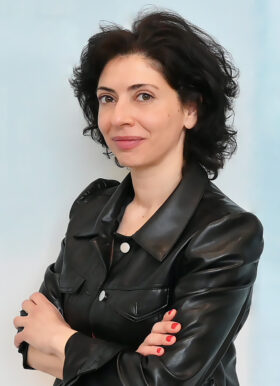
Laura Campisi, PhD
Assistant Professor, Pathology & Immunology
Contact
- Email: campisi@wustl.edu
- Phone: 314-273-7044
Division: Immunobiology
Titles
Assistant Professor, Center for Brain Immunology and Glia
Hope Center for Neurological Disorder
Education
Ph.D. in Immunology, University of Nice-Sophia Antipolis
Master in Genetic, Development and Immunity, University of Nice-Sophia Antipolis
B.S. in Biochemistry, School of Life Sciences, University of Nice-Sophia Antipolis
Recognition
Danforth Jr. Advanced Research in Neurological Disorders Award, Hope Center for Neurological Disorder, Washington University School of Medicine (2024)
Post-doctoral Recognition Award, Office of Postdoctoral Affairs, Icahn School of Medicine at Mount Sinai, New York, USA (2013)
Arthritis Foundation Post-doctoral Award, USA (2011-2014)
FRM (Fondation pour la recherché medicale) Fellowship, France (2008-2009)
French Minister of Research and Education (MENRT) Fellowship, France (2005-2008)
Research Interests
The overall goal of my research is to understand how T-cell responses are regulated in homeostatic conditions and how perturbations (genetic, environmental, parasitic) alter their effect. By studying T cell responses using genetic models we can learn not only about a specific disorder, but also discover unknown factors that regulate the immune system and reveal molecular and cellular mechanisms for T cell therapy in multiple settings: neurodegeneration, autoimmunity, cancer, infection.
Selected Publications
A microenvironment-driven HLA-II-associated insulin neoantigen elicits persistent memory T cell activation in diabetes
Publication
Nuclear RNA catabolism controls endogenous retroviruses, gene expression asymmetry, and dedifferentiation
Publication
Author Correction: Clonally expanded CD8 T cells characterize amyotrophic lateral sclerosis-4 (Nature, (2022), 606, 7916, (945-952), 10.1038/s41586-022-04844-5)
Publication
Clonally expanded CD8 T cells characterize amyotrophic lateral sclerosis-4
Publication
Assistant

Elizabeth Moore
Administrative Office Supervisor
Contact
- Email: melizabeth@wustl.edu
- Phone: 314-362-9103